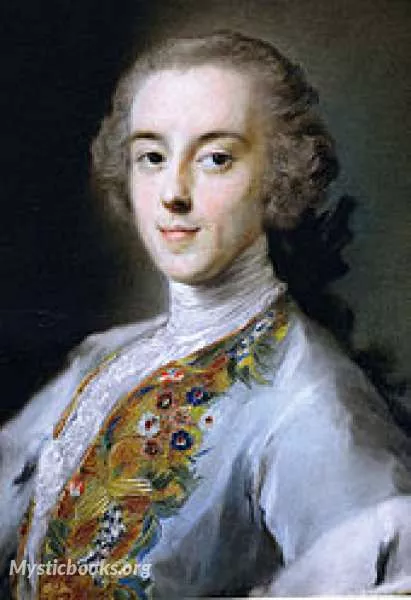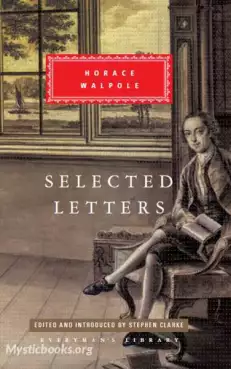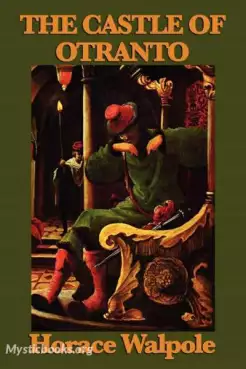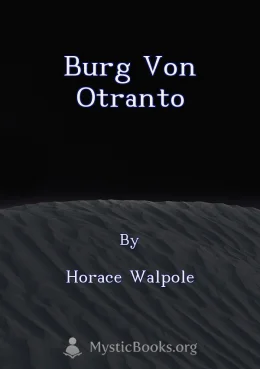
Timeline
Title
Country/Nationality
Horace Walpole
Horatio Walpole, better known as Horace Walpole, was an English writer, art historian, man of letters, antiquarian and Whig politician.
He had Strawberry Hill House built in Twickenham, south-west London, reviving the Gothic style some decades before his Victorian successors. His literary reputation rests on the first Gothic novel, The Castle of Otranto (1764), and his Letters, which are of significant social and political interest. They have been published by Yale University Press in 48 volumes.
The youngest son of the first British Prime Minister, Sir Robert Walpole, 1st Earl of Orford, he became the 4th and last Earl of Orford on his nephew's death in 1791. His barony of Walpole descended to his first cousin once removed of the same name but Baron Walpole of Wolterton. Horatio Walpole the younger was later created a new Earl of Orford.
Walpole was born in London, the youngest son of British Prime Minister Sir Robert Walpole and his wife Catherine. Like his father, he received early education in Bexley; in part under Edward Weston. He was also educated at Eton College and King's College, Cambridge.
Walpole's first friends were probably his cousins Francis and Henry Conway, to whom Walpole became strongly attached, especially Henry. At Eton he formed a schoolboy confederacy, the "Triumvirate", with Charles Lyttelton (later an antiquary and bishop) and George Montagu (later a member of parliament and Private Secretary to Lord North). More important were another group of friends dubbed the "Quadruple Alliance": Walpole, Thomas Gray, Richard West and Thomas Ashton.
At Cambridge Walpole came under the influence of Conyers Middleton, an unorthodox theologian. Walpole came to accept the sceptical nature of Middleton's attitude to some essential Christian doctrines for the rest of his life, including a hatred of superstition and bigotry. Walpole ceased to reside at Cambridge at the end of 1738 and left without taking a degree.
Walpole went on the Grand Tour with Gray, but as Walpole recalled in later life: "We had not got to Calais before Gray was dissatisfied, for I was a boy, and he, though infinitely more a man, was not enough to make allowances". They left Dover on 29 March and arrived at Calais later that day. They then travelled through Boulogne, Amiens and Saint-Denis, arriving at Paris on 4 April. Here they met many aristocratic Englishmen. In early June they left Paris for Reims, then in September going to Dijon, Lyon, Dauphiné, Savoy, Aix-les-Bains, Geneva, and then back to Lyons.
In October they left for Italy, arriving in Turin in November, then going to Genoa, Piacenza, Parma, Reggio, Modena, Bologna, and in December arriving at Florence. Here he struck up a friendship with Horace Mann, an assistant to the British Minister at the Court of Tuscany. In Florence he also wrote Epistle from Florence to Thomas Ashton, Esq., Tutor to the Earl of Plymouth, a mixture of Whig history and Middleton's teachings. In February 1740 Walpole and Gray left for Rome with the intention of witnessing the papal conclave upon the death of Pope Clement XII (which they never did see). Walpole wanted to attend fashionable parties and Gray wanted to visit all the antiquities. At social occasions in Rome he saw the Old Pretender James Francis Edward Stuart and his two sons, Charles Edward Stuart and Henry Stuart, although there is no record of them conversing.
Walpole and Gray returned to Florence in July. However, Gray disliked the idleness of Florence as compared to the educational pursuits in Rome, and an animosity grew between them, eventually leading to an end to their friendship. On their way back to England they had a furious argument, although it is unknown what it was about. Gray went to Venice, leaving Walpole at Reggio.
At the 1741 general election Walpole was elected Whig Member of Parliament for the rotten borough of Callington, Cornwall. He held this seat for thirteen years, although he never visited Callington. Walpole entered Parliament shortly before his father's fall from power: in December 1741 the Opposition won its first majority vote in the Commons for twenty years. In January 1742 Walpole's government was still struggling in Parliament although by the end of the month Horace and other family members had successfully urged the Prime Minister to resign after a parliamentary defeat. Walpole's philosophy mirrored that of Edmund Burke, who was his contemporary. He was a classical liberal on issues such as abolitionism and the agitations of the American colonists.
Walpole delivered his maiden speech on 19 March against the successful motion that a Secret Committee be set up to enquire into Sir Robert Walpole's last ten years as Prime Minister. For the next three years Walpole spent most of his time with his father at his country house Houghton Hall in Norfolk. His father died in 1745 and left Walpole the remainder of the lease of his house in Arlington Street, London; £5,000 in cash; and the office of Collector of the Customs (worth £1,000 per annum). However he had died in debt, the total of which was in between £40,000 and £50,000.
Walpole was a member of parliament for one of the many rotten boroughs, Castle Rising, consisting in underlying freeholds in four villages near Kings Lynn, Norfolk, from 1754 until 1757. At his home he hung a copy of the warrant for the execution of Charles I with the inscription "Major Charta" and wrote of "the least bad of all murders, that of a King". In 1756 he wrote:
I am sensible that from the prostitution of patriotism, from the art of ministers who have had the address to exalt the semblance while they depressed the reality of royalty, and from the bent of the education of the young nobility, which verges to French maxims and to a military spirit, nay, from the ascendant which the nobility itself acquires each day in this country, from all these reflections, I am sensible, that prerogative and power have been exceedingly fortified of late within the circle of the palace; and though fluctuating ministers by turns exercise the deposit, yet there it is; and whenever a prince of design and spirit shall sit in the regal chair, he will find a bank, a hoard of power, which he may lay off most fatally against this constitution. [I am] a quiet republican, who does not dislike to see the shadow of monarchy, like Banquo's ghost, fill the empty chair of state, that the ambitious, the murderer, the tyrant, may not aspire to it; in short, who approves the name of a King, when it excludes the essence.
— Ketton-Cremer 1964, p. 127
Walpole was horrified by the French Revolution and commended Edmund Burke's Reflections on the Revolution in France: "Every page shows how sincerely he is in earnest—a wondrous merit in a political pamphlet—All other party writers act zeal for the public, but it never seems to flow from the heart". He admired the purple passage in the book on Marie Antoinette: "I know the tirade on the Queen of France is condemned and yet I must avow I admire it much. It paints her exactly as she appeared to me the first time saw her when Dauphiness. She...shot through the room like an aerial being, all brightness and grace and without seeming to touch earth".
His father was created Earl of Orford in 1742. Horace's elder brother, the 2nd Earl of Orford (c. 1701–1751), passed the title on to his son, the 3rd Earl of Orford (1730–1791). When the 3rd Earl died unmarried, Horace Walpole became, at the age of 74, the 4th Earl of Orford, and the title died with him in 1797. The massive amount of correspondence he left behind has been published in many volumes, starting in 1798. Likewise, a large collection of his works, including historical writings, was published immediately after his death.
Books by Horace Walpole

Horace Walpole's Letters: A Selection
Horace Walpole, 4th earl of Orford, was a cultivated participant in, and observer of, the social and political life of Georgian England. His charming and witty letters are valuable pictures of the age. "A man so blessed that he could unfold every gif...

The Castle of Otranto
The Castle of Otranto is a novel by Horace Walpole. First published in 1764, it is generally regarded as the first gothic novel. In the second edition, Walpole applied the word 'Gothic' to the novel in the subtitle – A Gothic Story. Set in a haunted...

Burg von Otranto
Die Burg von Otranto erzählt die Geschichte von Manfred, dem Fürsten von Otranto, dessen Leben durch eine Reihe von unheilvollen Ereignissen und geheimnisvollen Vorkommnissen auf den Kopf gestellt wird. Als sein Sohn auf tragische Weise ums Leben kom...

Hieroglyphic Tales
Horace Walpole's *Hieroglyphic Tales* are a collection of short stories that showcase his imaginative and satirical style. He weaves together elements of the supernatural, the gothic, and the whimsical, creating a unique blend of fantasy and social c...